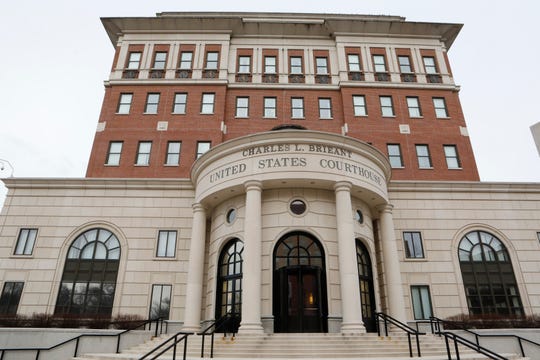Chapter 7

There are multiple chapters in which a person or entity, such as a corporation, can file for bankruptcy protection…. Chapter 9, 15, 11, 12, 13 and of course Chapter 7. Chapter 7 is the most common type of bankruptcy because most people qualify for a chapter 7. This article is to discuss the basic process for filing for Chapter 7 bankruptcy protection.
- What is Chapter 7
Chapter 7 is known as a “liquidation” chapter because assets (personal belongings)which are not exempt are liquidated (sold) and the income from the liquidation of the assets are used to pay off creditors . Many states provide large amount of exemptions which allows a person to keep their home, car(s), retirement plans, and other personal belongs.
- What is the process for a Chapter 7
- Retain an attorney.
- The attorney should be in good standing in the state.
- The attorney’s primary practice should be bankruptcy due to the multiple changes that took place in 2005.
- The attorney should be affiliated with a consumer /bankruptcy entities such as NACBA, NACA or other groups that focus on bankruptcy and consumer protection.
- The consultation should be for free, many attorneys provide for free consultation.
- The attorney should be versed in consumer law as well : FCRA (Fair Credit Reporting Act) FDCPA ( Fair Debt Collection Practice Act); Telephone Act, etc.
- Confirm if the attorney will represent you in an adversary proceeding (complaint filed against you in the bankruptcy court), work on your credit report after bankruptcy, represent you in any violations of the discharge order (creditors violating your bankruptcy rights after your debt has been discharged).
- Required Documents
- Your attorney will need 6 months of paystubs ( or income info)
- Two years of tax returns;
- 3 months of bank statements;
- Title/deed information for car/home/time share/land;
- Statement information for car/home/time share/land;
- Life insurance information;
- Divorce decrees;
- All creditor information which includes summons, complaints and judgments;
- Business information, profit/loss statements and tax return for business.
- Payment
- Payment for attorney must be paid in full. An attorney is not allowed to be a creditor and an attorney at the same time.
- An attorney should allow for monthly installments but the actual electronic filing of the petition on Pacer(bankruptcy court website) will not occur until the payments are in full.
- Attorneys are NOT allowed to use credit cards from the client as payments, but may use credit cards from a third party.
- Filing:
- You have provided the attorney with all of the documents listed above, made the payments as contracted in full and you have taken your credit counseling class ( 30 minute online or telephone class that is required before the filing of your petition).
- The attorney will prepare your petition and call you to schedule a signing appointment.
- The petition is nearly 60 pages long and the petition CAN NOT be filed until you have reviewed the petition, had the petition explained to you and signed the petition.
- Signing the petition is confirming that the information that you provided and that your attorney drafted is “true and correct under penalty of perjury”. You must know what you are signing because you will be held responsible-not your attorney.
- After the petition is signed, your petition should be filed shortly thereafter but certainly no longer than 5-7 days after signing the petition.
- Court
- Most clients are relieved when the petition is filed because their automatic stay is not in full effect (bankruptcy protection); however for the court and your attorney the work is just beginning.
- You will receive your court date in 5-7 days after the filing of your petition. The court date is normally 30 days after the filing of the petition. Neither you nor your attorney can control the date or time of your 341meeting (meeting of the creditors).
- The 341 hearing is not before a judge but before a Trustee (another attorney) who sits on behalf of your creditors.
- Normally the 341 meeting itself takes about 2-5 minutes in which the trustee asks basic yes or no questions that your attorney should have already have asked you several times about your real and personal property. Although the meeting with the trustee is normally short, the waiting time to be examined by the trustee could take hours.
- You, as the debtor, must arrive early and bring your social security card and photo id. The social security card should be signed, reflect the same name that is on the petition, and your photo id (driver’s license) should be current, and should have the same address that is on the petition.
- The trustee will either “Close the 341 Meeting” meaning that he is satisfied that your questions are truthful and correspond with the information in the petition, or he will “adjourn the 341 Meeting” in which to seek additional information and confirmation that the information in the petition is true and accurate.
- Usually, the 341 meeting is closed and you will receive your discharge order in the mail in approximately 60 days (if no other creditor has filed an objection to you receiving your discharge).
- Retain an attorney.
Be mindful that normally a Chapter 7 bankruptcy is uneventful in that: no creditors arrive that the 341 meeting, the trustee closes the 341 meeting on the day of the meeting and that no creditors object to your discharge. However, no one can guarantee that you will receive your discharge or not be subject to additional scrutiny from creditors or the trustee. Best advice is to be truthful with your attorney and disclose any and all information to him/her ….relevant or irrelevant. Know also that all types of people file: police officers, detectives, lawyers, doctors, bankers, teachers, etc. The most important focus for you, if you are considering bankruptcy, is to eliminate debt that is preventing you for leading a successful and healthy life so that you may regain your financial future.



